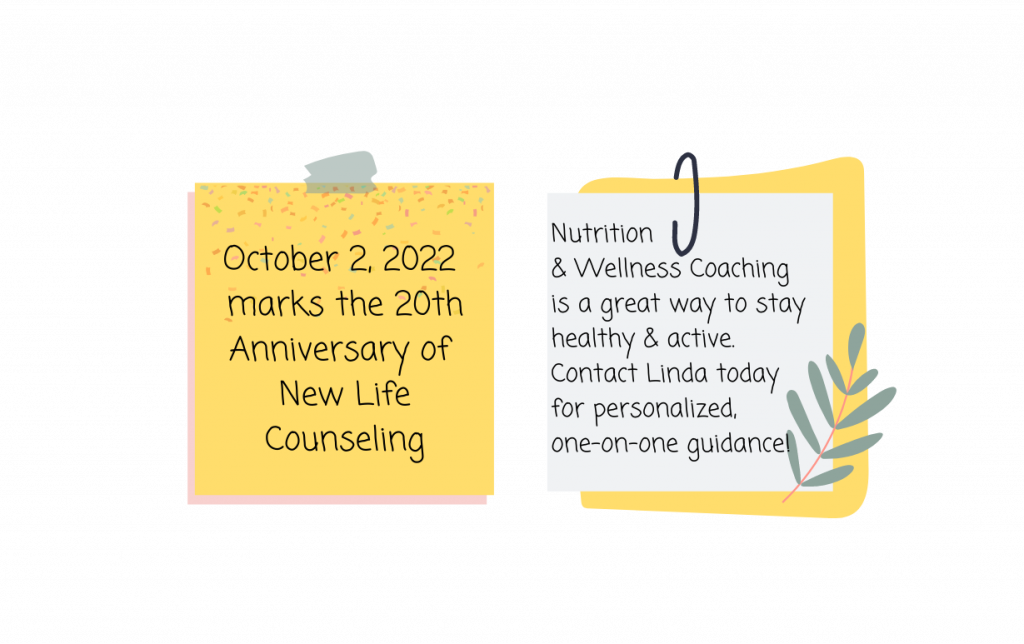ADHD Nutrition | Wellness Connections
October is ADHD awareness month! Research shows there is a direct correlation between what we feed our bodies and how our brains function. Diet and nutrition are the foundation of overall health impacting cognition, attention, sleep, mood, play a major role in managing the symptoms of ADD/ADHD, and can help medications work more efficiently. Diets that include fresh ingredients, a variety of foods from all the food groups, protein – rich foods, limited sugar/additives/processed foods, and nutrition supplements can help improve symptoms of ADHD including hyperactivity, concentration, and impulsivity.

Diet is not the cure-all for ADHD and poor diet does not cause ADHD. However, nutrition goes hand in hand with ADHD because brain cells need proper nutrition to carry out their jobs, the myelin sheath (insulation for brain cells) requires the right levels of nutrients to speed transmission of the electrical signals between brain cells, and neurotransmitters (dopamine/serotonin, and norepinephrine) also depend on diet for proper functioning.
With all that in mind, here’s a look at some basic diet and nutrition guidelines for children and adults with ADHD.

Water
The brain is 80% water and cannot function properly if it is not well hydrated. Drinking water throughout the day will keep the brain hydrated and help improve focus and concentration.
Eat regular and consistent meals and snacks
Starting with the first meal of the day, aim to eat every 3-4 hours. Eating regularly can help maintain blood sugar levels throughout the day, which in turn can help limit irritability and improve concentration.


Include protein rich foods with meals and snacks
Protein is used by the brain to make neurotransmitters (the chemicals release by the brain cells to communicate with each other) and helps to keep blood sugar levels steady. Including quality protein sources (lean meats, beans, nuts/nut butters, eggs, dairy) throughout the day will help with focus and concentration.
Carbohydrates
Carbohydrates affect brain function and mood positively or negatively depending on the type that is eaten. Glycemic index is the rate that sugar from a food enters brain cells and other cells of the body. Foods with a high glycemic index cause the pancreas to secrete high levels of insulin, which causes sugar to empty quickly from the the blood into the cells. Insulin regulates the ups and downs of blood sugar and the rollercoaster behavior that goes with them. Low -glycemic foods deliver a steady supply of sugar which can help a person with ADHD control behavior and improve performance at work or school. Whole fruits, vegetables, legumes, whole grains (oatmeal, whole wheat bread, quinoa), and dairy products all have lower glycemic indexes.


Sugar
It is important to decrease the amount of sugar consumed daily. Not only from obvious sugar sources, like candy, but also simple carbs like white bread, waffles, poptarts, etc. Simple carbohydrates are broken down into glucose quickly, which results in a blood sugar spike. This then leads to insulin being released, which results in a drop in blood sugar. The result is feeling irritable and stressed out. Sugar carries a lot of calories but no real nutritional value. Eating a lot of sweets may result in missing out on essential nutrients that might keep them calm and focused. It’s important to make every calorie count especially when ADHD medications tend decrease appetite.
Healthy Fats & Fish Oil
Fats make up about 60 percent of the brain and nerves they run every system in the body. Having good fat in the diet will help the brain function well. There are two essential fatty acids that are important to brain function that are found in fish oil: linoleic (omega 6) and alpha linolenic (omega 3). It is important to have the right ration of these two fats – 2:1 ratio EPA to DHA is recommended. Having sufficient Omega – 3 fat in the diet can improve ADHD behavior, hyperactivity, impulsivity, and concentration. Omega 3 fats can be found in sources like salmon, tuna, walnuts and chia seeds or flaxseeds. Healthier fats include avocado, avocado oil, and olive oil. For help determining the right amount of omega’s/ sources/ and supplementation contact Linda or your doctor.

*A note from Linda (RDN): If it is difficult to get Omega-3’s in with dietary sources, consider supplementing fish oil in a capsule, liquid, or chewable form. The chewable form doesn’t have a lot of fish oil in it, which means you have to take more, and that becomes expensive. A liquid form is easy to put with anything, orange juice, smoothies, etc. The recommended amount is 1500-2000 mg/day for older children and adults.

Vitamins & Minerals
There are several vitamins and minerals that can affect behavior and learning in children and adults such as vitamin C, B6, iron, magnesium, and zinc. It is important to consult with your physician and/or a registered dietitian before implementing vitamin and mineral supplements. The good news is that all of these can be found in foods simply by eating a variety of foods and colors of foods from all of the food groups. For more information on how to incorporate more vitamin and mineral rich foods into the diet feel free to connect with Linda for nutrition coaching.
Avoid Additives
Artificial additives, colors, and preservatives can increase hyperactivity and decrease attention. Some examples of foods that contain artificial colors and preservatives include: cheese puffs, Gatorade, colorful cereal like fruit loops, candy like twizzlers, and fruit punch to name a few. Food ingredient labels will indicate if there are additives in the product or not. There are a lot of food products on the market available without additives. Fresh, unprocessed foods contain few additives and nourish the body well.


Food Sensitivities
Research is showing that it is not uncommon for those with ADHD to be sensitive to common foods in the diet. When food sensitivities are present, it can make ADHD symptoms worse. A food sensitivity is not a true food allergy – allergy testing will usually present as negative. Food sensitivity displays allergy-like symptoms, eczema, or GI issues. The most common food sensitivities are dairy, wheat, and soy. If food sensitivity is suspected, a gradual elimination diet can be trialed with the help of a dietitian.
Exercise Your Brain
WRITTEN BY YOUR NEIGHBORHOOD BOOTCAMP INSTRUCTOR
When we think of exercise, we usually think of cardio exercises and strength training. After recently suffering a severe concussion, I learned about a new area of exercise. It turns out, your brain, the most important organ in the body needs a little exercise and challenge too. Here are some things you can do to challenge your brain:
- Puzzles
- Reading
- Learn a new language. Instead of learning verb conjugation focus on small tasks like ordering at a restaurant.
- Build your vocabulary by learning new words.
- Listen to music.
- Do research on a topic of your choice.
- Memorize something that is interesting to you.
- Take a new way home and experience a new place.
- Remove all the noise from your life and be still and quiet.
- And finally, let your brain rest and recover daily. Try limiting screen time before bed and turn off all electronics through the night.
Give one of these ideas a try this week and see how good you feel.


Linda is our Registered Dietitian Nutritionist that uses a balanced approach to health and wellness, focusing on nutrition, movement, sleep, and connecting you with other appropriate health resources.
Linda understands and recognizes the courage needed to take the first step in caring for yourself and starting your own health and wellness journey. Learn more about Linda’s services like individual wellness and nutrition consultations, ministry and church wellness consultations, and group presentations here!
Want more wellness content like this in your inbox once per month?
Don’t worry, we won’t spam you. Nobody likes that 😉

